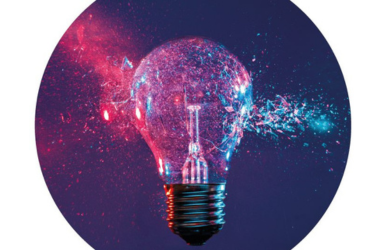
Aledia Joins Forces with European Consortium to Bring MicroLED Display Manufacturing Back to Europe
The BAMBAM (Building Active Matrix By Additive Manufacturing) project is an ambitious European initiative that aims to revolutionize the display manufacturing industry by making it greener and bringing production back to Europe. The project seeks to overcome the limitations of traditional Thin-Film Transistor (TFT) technology, which is energy-intensive and heavily reliant on Asian manufacturing, by developing an innovative additive manufacturing process.
The need for change
The European Union currently imports all of its electronic displays from Asia, leading to a lack of control over the manufacturing processes and their environmental impact. The production of TFTs, a key component in LCD and OLED displays, is particularly energy-consuming and requires significant capital investment, making it economically unviable to relocate production to Europe.
The BAMBAM solution
The BAMBAM project unites seven European partners: The Institute for Large Area Microelectronics at the University of Stuttgart (USTUTT), and five SMEs: Aledia, XDisplay, QustomDot, XTPL, and X-Celeprint. The final partner is Barco, a major European display provider that sets the market requirements for the project.
It aims to eliminate the need for TFTs by developing an additive manufacturing process based on active microLED pixels and microprinting of electrical and optical structures. The active microLEDs incorporate their own drivers, removing the need for a TFT panel. This approach promises several benefits, including:
- Reduced energy consumption: The new technology is expected to be significantly more energy-efficient than both LCD and OLED displays, contributing to a greener display industry.
- Flexible and seamless displays: The microprinting technology allows for displays to be built on various substrates, opening the door to flexible displays and seamless video walls.
- European production: By eliminating the reliance on TFTs, BAMBAM aims to make display production in Europe economically and environmentally attractive.
Aledia's role
Aledia plays a crucial role by providing its expertise in microLED technology and pixel design. Specifically, Aledia supplies the blue microLEDs that are integrated into the project's innovative digital RGB pixel. These microLEDs are a fundamental component of the pixel, contributing to its small size and energy efficiency. In addition, Aledia has collaborated with QustomDot and XTPL to develop the color conversion module, which is essential for achieving a wide color gamut in the final display. The company also designed the cavities that house the microLEDs and the color conversion module, further demonstrating its integral involvement in the project's success.
Progress and achievements
The BAMBAM project has already made significant progress in its first 18 months. Key achievements include:
- Demonstrator 4x4 pixel: The consortium has successfully manufactured a 4x4 pixel demonstrator on glass, proving the viability of the printing approach.
- Digital Pixel advancements: The project has successfully validated the integration of the XDisplay µDriver mass transfered by X-Celeprint and the interconnection of the µPackage through wire printing done by USTUTT. The XTPL advanced technology enables achieving ultra-fine pitch levels that are unattainable with traditional wire bonding methods commonly used in the mini-LED industry.
- Color conversion module advancements: Collaboration between Aledia, QustomDot and XTPL has led to significant improvements in the color conversion module, including the successful printing of InP-based quantum dot inks in the BamBam cavities.
Future goals
The BAMBAM project is now entering a consolidation phase, with plans to produce a demonstrator representing a section of a tile for a seamless video wall. The long-term objective is to target the high-end and professional TV market segment, where OLED and LCD technologies are currently absent. The consortium is also evaluating the environmental and economic performance of the developed solutions compared to LCD and OLED technologies.
In addition, Aledia and the BAMBAM consortium will be presenting their progress at Eurodisplay 2024 in Grenoble, France, from September 18-20. This is an excellent opportunity to learn more about this groundbreaking project and its potential to reshape the display industry.
